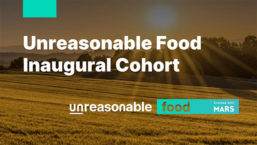Home » Keywords: » zero emissions
Items Tagged with 'zero emissions'
ARTICLES
Mars and Unreasonable Group will work together with 15 rapid growth ventures across five continents in the first year, supporting sustainability and Net Zero by 2050
Read More
Mars Tackles Climate Change Across Iconic Brands
The company intends to invest more than $1 billion over the next three years to drive climate action
September 22, 2023
SUSTAINABILITY
Coffee, Chocolate and Meat Strive Toward Sustainability
Responsibly sourced coffee, conscious company awards, net carbon zero beef are recent examples of brands working to adopt sustainable models
June 15, 2022
Evol Carbonfree Certified Carbon Neutral Meals
Carbonfund.org Foundation Certified Carbonfree® products have "net zero" CO2 emissions, meaning brands like Evol measure the carbon footprint of the products over their full lifecycle
April 22, 2022
CATEGORY INSIGHTS: SUSTAINABILITY
Sustainability Strategies Take Shape Across the Food & Beverage Industry
Companies commit to net-zero emissions, identify new packaging opportunities and appoint sustainability leadership
February 23, 2022
Nestlé US Announces New Projects, Brand Commitments on its Journey to Net Zero
Nestlé will accelerate current initiatives, evolve its operations, and uncover ways to balance remaining emissions through high-quality carbon removal projects
December 4, 2020





